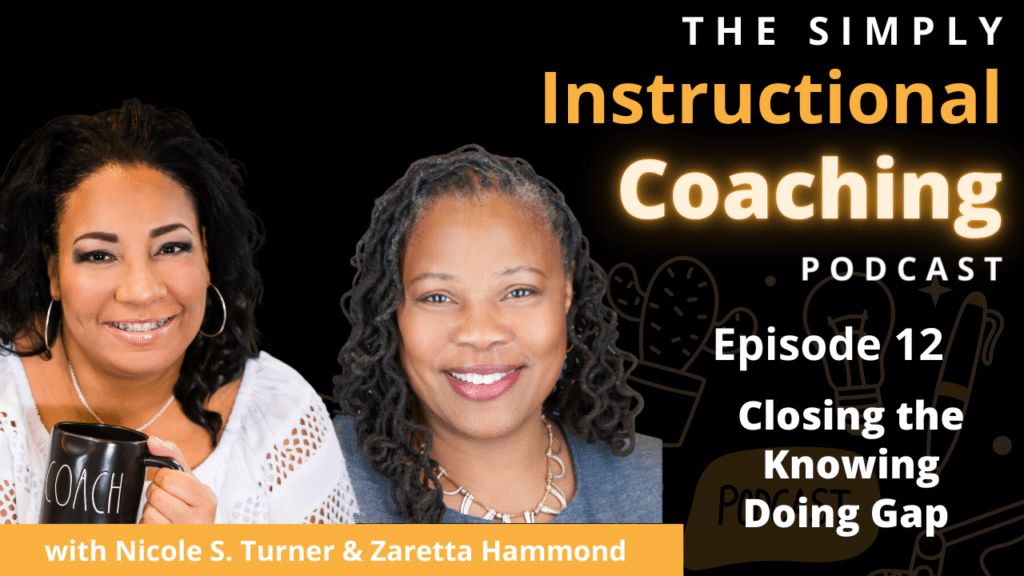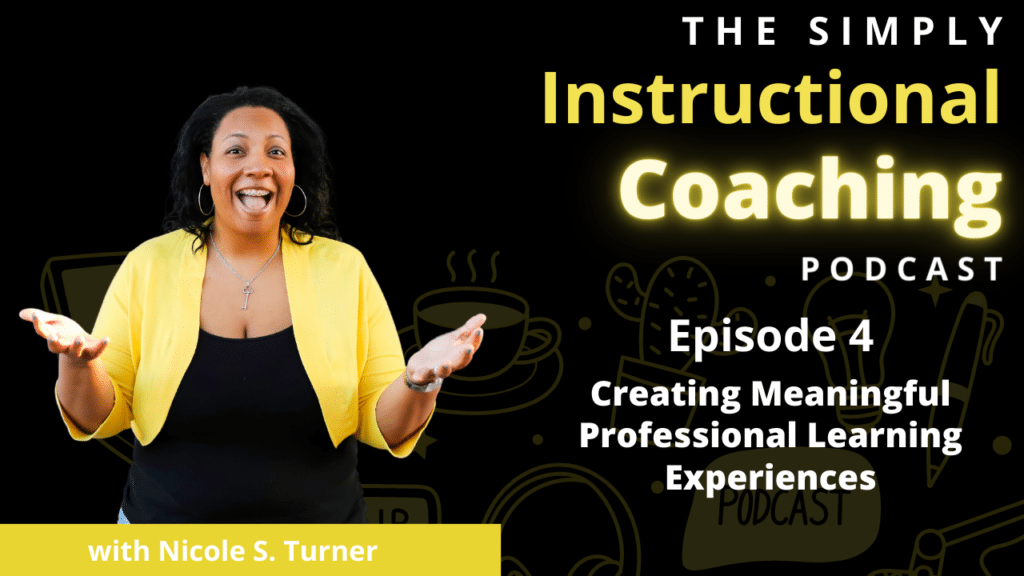Building Relationships with Resistant Teachers with Allison Peterson – Episode 11
By Nicole S. Turner
Share This Post:


Resistance is a common challenge that coaches face when working with teachers. Understanding resistance and how to approach resistant teachers is so helpful in building connections. Our guest today, Allison Peterson, is diving into how to build connections with resistant teachers.
Allison Peterson created the #NewToCoaching community to help new coaches transition from the classroom to coaching. In her course, The Breakthrough Circle, she coaches and supports new instructional coaches. Along with her coaching, Allison helps schools design and start instructional coaching programs on top of being a K-8 instructional coach herself!
In this episode, Allison is sharing all about her journey from middle school English teacher to instructional coach. We are diving into finding passion in the deep work of coaching teachers, the importance of addressing teachers’ trauma, why we need to get to the reason behind resistance, and how coaches should respond to resistance in order to better reach resistant teachers. Plus, Allison is sharing three tips she has for coaches.
I absolutely loved chatting with Allison and I am so excited to have her presenting LIVE at the Simply Coaching Summit! If you loved this episode as much as I did, be sure to register and join us at the summit. If you want to join me and Allison IN-PERSON, register for the Simply Coaching Summit Bootcamp – we’d love to see you there!
Topics Covered in Episode 11: Building Relationships with Resistant Teachers with Allison Peterson
- Allison’s Journey from middle school English teacher to instructional coach
- Finding passion in supporting teachers in the deep work of coaching
- Why coaches need to acknowledge their teachers’ trauma
- The importance of figuring out what is the reason behind the resistance of teachers
- How coaches should respond to resistant teachers
- Allison’s 3 tips for coaches
Links from this episode
- Register for the Simply Coaching Summit
- Grab a copy of the Simply Coaching Summit brochure here!
- Register for the In-Person Simply Coaching Summit Bootcamp
- Join the #NewToCoaching Facebook Group
- Learn more about the Breakthrough Circle
Connect with Nicole S. Turner
- Website: Home
- Simply Coaching Hub: Simply Coaching Hub
- Instagram: https://www.instagram.com/simplycoachingandteaching_
- Twitter: https://www.twitter.com/https://twitter.com/coachandteach
- Email: [email protected]
Allison Peterson Bio:
Allison is the founder of the #NewtoCoaching Community where new Instructional Coaches can learn, connect, and be encouraged as they transition from the classroom to coaching. She coaches new Instructional Caches inside her coaching program, The Breakthrough Circle. In addition to training and supporting new Instructional Coaches, Allison helps schools design and start instructional coaching programs. She lives out her philosophy of coaching every day as a K-8 Instructional Coach in North Georgia.
Podcast Transcript



